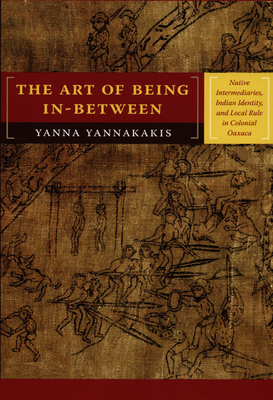The Art of Being In-between: Native Intermediaries, Indian Identity, and Local Rule in Colonial Oaxaca

The Art of Being In-between: Native Intermediaries, Indian Identity, and Local Rule in Colonial Oaxaca
In The Art of Being In-between Yanna Yannakakis rethinks processes of cultural change and indigenous resistance and accommodation to colonial rule through a focus on the Sierra Norte of Oaxaca, a rugged, mountainous, ethnically diverse, and overwhelmingly indigenous region of colonial Mexico. Her rich social and cultural history tells the story of the making of colonialism at the edge of empire through the eyes of native intermediary figures: indigenous governors clothed in Spanish silks, priests' assistants, interpreters, economic middlemen, legal agents, landed nobility, and "Indian conquistadors." Through political negotiation, cultural brokerage, and the exercise of violence, these fascinating intercultural figures redefined native leadership, sparked indigenous rebellions, and helped forge an ambivalent political culture that distinguished the hinterlands from the centers of Spanish empire.
Through interpretation of a wide array of historical sources--including descriptions of public rituals, accounts of indigenous rebellions, idolatry trials, legal petitions, court cases, land disputes, and indigenous pictorial histories--Yannakakis weaves together an elegant narrative that illuminates political and cultural struggles over the terms of local rule. As cultural brokers, native intermediaries at times reconciled conflicting interests, and at other times positioned themselves in opposing camps over the outcome of municipal elections, the provision of goods and labor, landholding, community ritual, the meaning of indigenous "custom" in relation to Spanish law, and representations of the past. In the process, they shaped an emergent "Indian" identity in tension with other forms of indigenous identity and a political order characterized by a persistent conflict between local autonomy and colonial control. This innovative study provides fresh insight into colonialism's disparate cultures and the making of race, ethnicity, and the colonial state and legal system in Spanish America.
PRP: 284.19 Lei
Acesta este Pretul Recomandat de Producator. Pretul de vanzare al produsului este afisat mai jos.
255.77Lei
255.77Lei
284.19 LeiLivrare in 2-4 saptamani
Descrierea produsului
In The Art of Being In-between Yanna Yannakakis rethinks processes of cultural change and indigenous resistance and accommodation to colonial rule through a focus on the Sierra Norte of Oaxaca, a rugged, mountainous, ethnically diverse, and overwhelmingly indigenous region of colonial Mexico. Her rich social and cultural history tells the story of the making of colonialism at the edge of empire through the eyes of native intermediary figures: indigenous governors clothed in Spanish silks, priests' assistants, interpreters, economic middlemen, legal agents, landed nobility, and "Indian conquistadors." Through political negotiation, cultural brokerage, and the exercise of violence, these fascinating intercultural figures redefined native leadership, sparked indigenous rebellions, and helped forge an ambivalent political culture that distinguished the hinterlands from the centers of Spanish empire.
Through interpretation of a wide array of historical sources--including descriptions of public rituals, accounts of indigenous rebellions, idolatry trials, legal petitions, court cases, land disputes, and indigenous pictorial histories--Yannakakis weaves together an elegant narrative that illuminates political and cultural struggles over the terms of local rule. As cultural brokers, native intermediaries at times reconciled conflicting interests, and at other times positioned themselves in opposing camps over the outcome of municipal elections, the provision of goods and labor, landholding, community ritual, the meaning of indigenous "custom" in relation to Spanish law, and representations of the past. In the process, they shaped an emergent "Indian" identity in tension with other forms of indigenous identity and a political order characterized by a persistent conflict between local autonomy and colonial control. This innovative study provides fresh insight into colonialism's disparate cultures and the making of race, ethnicity, and the colonial state and legal system in Spanish America.
Detaliile produsului








